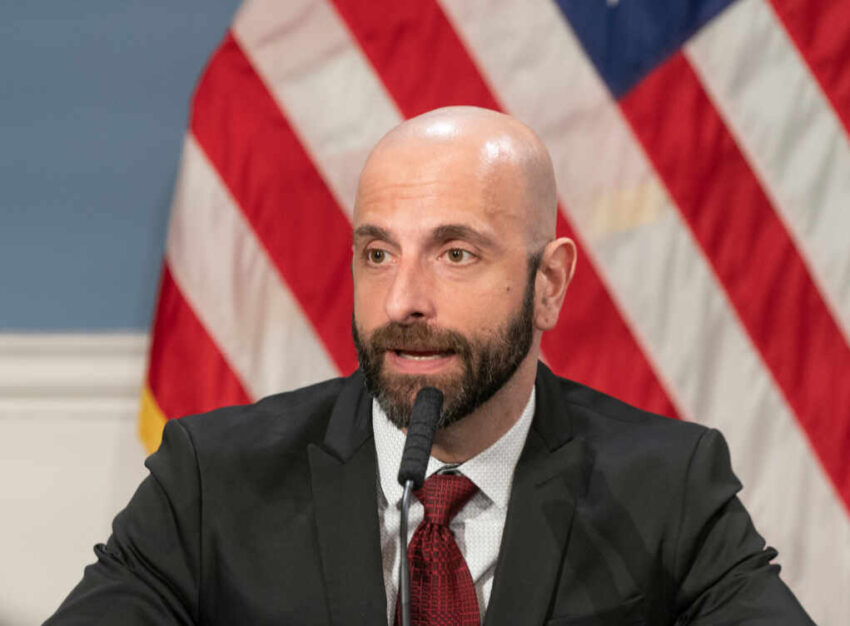I only see harm coming. That is how Dr. Demetre Daskalakis, former head of the CDC’s National Center for Immunization and Respiratory Diseases, described the impact of Robert F. Kennedy Jr.’s new direction for vaccine policy under the Department of Health and Human Services.
At a Glance
- Former CDC official Demetre Daskalakis warned that HHS leadership poses risks to vaccine policy
- Multiple senior CDC officials have resigned in recent weeks over concerns of political interference
- The Advisory Committee on Immunization Practices was restructured with new members seen as ideologically motivated
- Public health experts caution that vaccine access and trust could be undermined by these changes
Ideological Influence Over Scientific Guidance
In a nationally broadcast interview, Dr. Daskalakis stated that he believed federal vaccine programs were being deliberately dismantled. His concern centered on the reshaping of the Advisory Committee on Immunization Practices, the expert panel historically responsible for evaluating vaccine data and issuing recommendations to the public. According to his account, several new members placed on the committee either lack direct vaccine expertise or have expressed skepticism about immunization. This, he argued, risks steering the process away from scientific consensus toward policy driven by ideology.
Watch now: CDC leaders who resigned sound alarm over direction of … · YouTube
Daskalakis emphasized that while disagreement in science is expected, replacing expert consensus with political appointments introduces decisions that may not be based on evidence. Such a shift, he warned, could erode the effectiveness of immunization programs that have historically reduced disease outbreaks. He drew parallels to past situations where political influence over public health decisions led to delays or confusion, ultimately costing lives during emergencies.
Leadership Exodus and Internal Fractures
The leadership changes at HHS have triggered turbulence at the CDC. In addition to Daskalakis’s resignation, several senior officials also stepped down, citing concerns that the integrity of public health policy was being compromised. Among the departures was Dr. Susan Monarez, who had been named CDC director less than a month earlier. She was removed from her position after reportedly resisting policy directives she deemed unscientific.
The sudden loss of experienced staff has raised alarm among public health observers, who argue that continuity in leadership is essential to managing complex challenges such as influenza, COVID-19 variants, and childhood vaccination campaigns. Without that stability, the CDC risks entering what experts describe as a period of diminished authority and reduced capacity to mount coordinated responses to outbreaks. This erosion of expertise could also discourage younger scientists from pursuing careers in government service, further weakening institutional strength.
Reports suggest that morale at the agency has been declining, with remaining staff uncertain about whether scientific recommendations will continue to guide national policy. Some officials privately worry that the political reshaping of advisory bodies is part of a longer-term strategy to reduce the role of vaccines in public health altogether. These developments underscore a widening gap between long-standing scientific norms and the new leadership’s approach.
Consequences for Public Health and Trust
Public health experts caution that the removal of trusted structures, such as the Advisory Committee on Immunization Practices, could undermine the reliability of vaccine recommendations. For decades, the committee served as a critical link between research and implementation, ensuring that decisions were based on extensive data and peer-reviewed science. Its weakening, observers argue, creates a vacuum that could be filled with conflicting or ideologically motivated guidance.
The most immediate risk is public confusion. Mixed messages on vaccine safety or necessity could discourage parents from immunizing children against diseases such as measles or whooping cough, both of which require high vaccination rates to maintain herd immunity. Historical evidence shows that even small drops in vaccination coverage can lead to outbreaks, reversing years of progress. In the longer term, diminished trust in federal health agencies may also complicate efforts to respond to pandemics or bioterrorism threats, when coordinated action is essential.
Some analysts note that these changes reflect a broader shift in governance, where public health decisions are increasingly influenced by political movements rather than professional expertise. This transformation could extend beyond vaccines, shaping how future administrations approach issues ranging from food safety to epidemic preparedness. The concerns raised by Daskalakis and other departing officials therefore highlight not only immediate dangers but also the possibility of lasting institutional change in the nation’s public health system.
Sources
Click this link for the original source of this article.
Author: Editor
This content is courtesy of, and owned and copyrighted by, https://thecongressionalinsider.com and its author. This content is made available by use of the public RSS feed offered by the host site and is used for educational purposes only. If you are the author or represent the host site and would like this content removed now and in the future, please contact USSANews.com using the email address in the Contact page found in the website menu.





